Let’s face it, sometimes people try to cheat a drug test. One popular way individuals attempt to avoid a positive drug test result is to substitute their own urine with synthetic urine. The individual quickly searches for a product that promises to render a “clean drug test” and formulates a plan to successfully slip the synthetic urine substitute into their drug test specimen collection appointment. A would-be cheater then hopes that the collector is not attentive and cannot detect the difference.
What is synthetic urine?
Synthetic urine, or fake urine, is essentially water that has been fortified with various constituents such as creatinine, salts, uric acid, and yellow coloring to make a sample appear to be normal human urine. The imitation urine industry constantly tweaks its formula and systems to make a product that is designed to be undetectable in standard urine drug tests.
How does a collector prevent the use of synthetic urine?
Detection starts at the point of collection. Collectors are trained to follow specific protocols that can help to identify suspicious or unusual activities during the drug test collection process. For example, a collector will ensure that a urine specimen is within the appropriate temperature range, or pay attention to an individual exceeding a reasonable time limit while using the restroom for his or her drug test. Unless an observed urine drug test is mandated by the US Department of Transportation or other federal agency requirements, most urine drug testing is not a directly observed collection.
Can synthetic urine fool a drug test?
There are many qualities the synthetic urine just cannot replicate. One of the easiest indictors for a collector to spot fake urine during a collection is temperature. In addition, the use of some synthetic urine products may result in the reporting of an “Invalid” specimen that is rejected for testing by the laboratory.
Summary
Although it is a prosperous market at the expense of their customers, using synthetic urine to fool a urine test is not a sure bet. Employers who want a drug-free workplace should consider a drug testing program that includes safeguards, such as rigorous collection protocols, to weed out individuals attempting to cheat the drug test. Additionally, employers can select oral fluid or hair testing which features an observed collection that decreases the risks of a specimen being substituted or adulterated or the testing process subverted by the donor.
For more information about drug testing, visit our website or contact us online.
 Your Privacy Choices
|
Privacy Notices
|
Terms
|
Language Assistance / Non-Discrimination Notice | Asistencia de Idiomas / Aviso de no Discriminación | 語言協助 / 不䈚視通知
Your Privacy Choices
|
Privacy Notices
|
Terms
|
Language Assistance / Non-Discrimination Notice | Asistencia de Idiomas / Aviso de no Discriminación | 語言協助 / 不䈚視通知
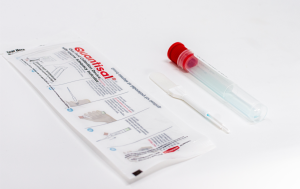
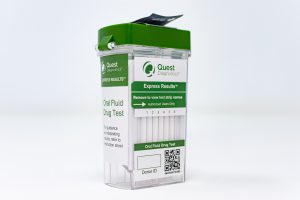
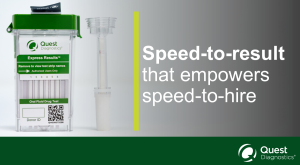
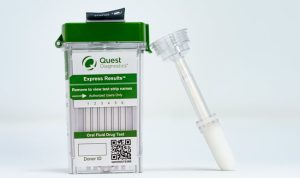


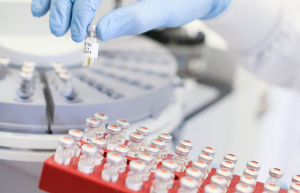
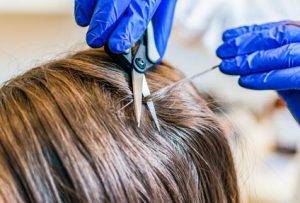
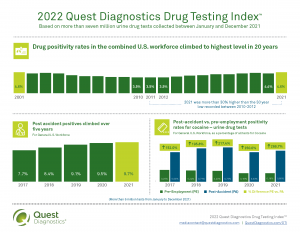
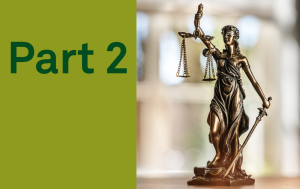

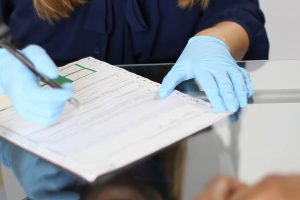
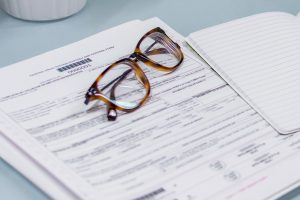

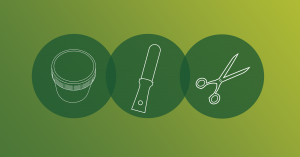




Let’s face it, sometimes people try to cheat a drug test. One popular way individuals attempt to avoid a positive drug test result is to substitute their own urine with synthetic urine. The individual quickly searches for a product that promises to render a “clean drug test” and formulates a plan to successfully slip the synthetic urine substitute into their drug test specimen collection appointment. A would-be cheater then hopes that the collector is not attentive and cannot detect the difference.
What is synthetic urine?
Synthetic urine, or fake urine, is essentially water that has been fortified with various constituents such as creatinine, salts, uric acid, and yellow coloring to make a sample appear to be normal human urine. The imitation urine industry constantly tweaks its formula and systems to make a product that is designed to be undetectable in standard urine drug tests.
How does a collector prevent the use of synthetic urine?
Detection starts at the point of collection. Collectors are trained to follow specific protocols that can help to identify suspicious or unusual activities during the drug test collection process. For example, a collector will ensure that a urine specimen is within the appropriate temperature range, or pay attention to an individual exceeding a reasonable time limit while using the restroom for his or her drug test. Unless an observed urine drug test is mandated by the US Department of Transportation or other federal agency requirements, most urine drug testing is not a directly observed collection.
Can synthetic urine fool a drug test?
There are many qualities the synthetic urine just cannot replicate. One of the easiest indictors for a collector to spot fake urine during a collection is temperature. In addition, the use of some synthetic urine products may result in the reporting of an “Invalid” specimen that is rejected for testing by the laboratory.
Summary
Although it is a prosperous market at the expense of their customers, using synthetic urine to fool a urine test is not a sure bet. Employers who want a drug-free workplace should consider a drug testing program that includes safeguards, such as rigorous collection protocols, to weed out individuals attempting to cheat the drug test. Additionally, employers can select oral fluid or hair testing which features an observed collection that decreases the risks of a specimen being substituted or adulterated or the testing process subverted by the donor.
For more information about drug testing, visit our website or contact us online.